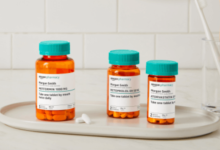How Healthcare Call Center Companies Help to Improve Patient Care and Financial Outcomes

Healthcare systems today face immense pressure to meet rising patient expectations while maintaining cost efficiency. From missed appointments to delayed follow-ups, inefficiencies in communication frequently result in poor clinical outcomes and revenue losses. As the industry continues to evolve, many organizations are turning to healthcare call center companies to improve both the patient experience and financial performance. Strategically integrated call centers ensure that patients receive timely, accurate, and personalized communication, bridging the gaps between clinical visits and backend operations.
Enhancing Patient Engagement and Support
Consistent communication is essential to guiding patients through their healthcare journey. Call centers play a crucial role in appointment scheduling, insurance verification, medication reminders, and post-discharge follow-ups. By handling these administrative tasks efficiently, they allow clinical teams to focus solely on care delivery. Moreover, patient engagement improves dramatically when there’s always a live, informed voice on the other end, especially for individuals managing chronic conditions or navigating complex treatment plans. The success of these models becomes more evident when you explore distinctions between modern and traditional approaches. A closer examination of how healthcare call centers differ from traditional call centers reveals the technological sophistication and healthcare-specific training that elevate these services above standard customer support.
Streamlining Financial Workflows
Administrative overload is one of the leading causes of burnout and revenue leakage in medical practices. Healthcare call centers are increasingly leveraged to manage billing inquiries, insurance coordination, and appointment collections. With trained personnel handling these backend processes, practices reduce claim denials and improve cash flow cycles. Patients also benefit from more transparent communication about out-of-pocket costs, which reduces financial confusion and enhances satisfaction. Call centers equipped with intelligent routing systems and integrated EMR access streamline communications between insurance providers, pharmacies, and clinicians, minimizing delays and redundancies that often plague traditional systems.
Improving Accessibility and Reducing No-Shows
Timely access to care remains a challenge, especially for high-risk or underserved populations. A well-staffed medical call center ensures that patients are not only reminded of their appointments but also have support to reschedule if needed, drastically reducing no-show rates. Proactive outreach campaigns can inform patients about preventive screenings, vaccinations, or medication refills, all of which have a direct impact on population health management. Reducing missed appointments also has a positive effect on the bottom line. Fewer no-shows translate to fewer wasted resources and improved operational efficiency. The role of call centers in enhancing healthcare provider efficiency highlights how effective outreach mechanisms can drastically improve utilization rates while maintaining a high standard of care.
Supporting Data-Driven Decision Making
Call centers also provide invaluable data that can inform operational improvements. By tracking common inquiries, response times, and service satisfaction, healthcare organizations can identify trends and inefficiencies. These insights support continuous process optimization, whether through staffing adjustments, scripting refinements, or updated communication protocols. Over time, the cumulative effect is improved patient trust, better outcomes, and financial sustainability. In addition, centralizing patient communication helps enforce consistency in brand messaging and clinical advice, ensuring patients receive accurate information regardless of which representative they speak with.
Conclusion
Healthcare call center companies are no longer just logistical support systems; they are strategic partners in delivering seamless, coordinated, and financially sustainable care. From improving patient access to reducing operational waste, these services are transforming how healthcare providers engage with their patients and manage internal workflows. As demands on healthcare systems continue to grow, the value of integrating professional, healthcare-focused call center solutions becomes even more apparent.


